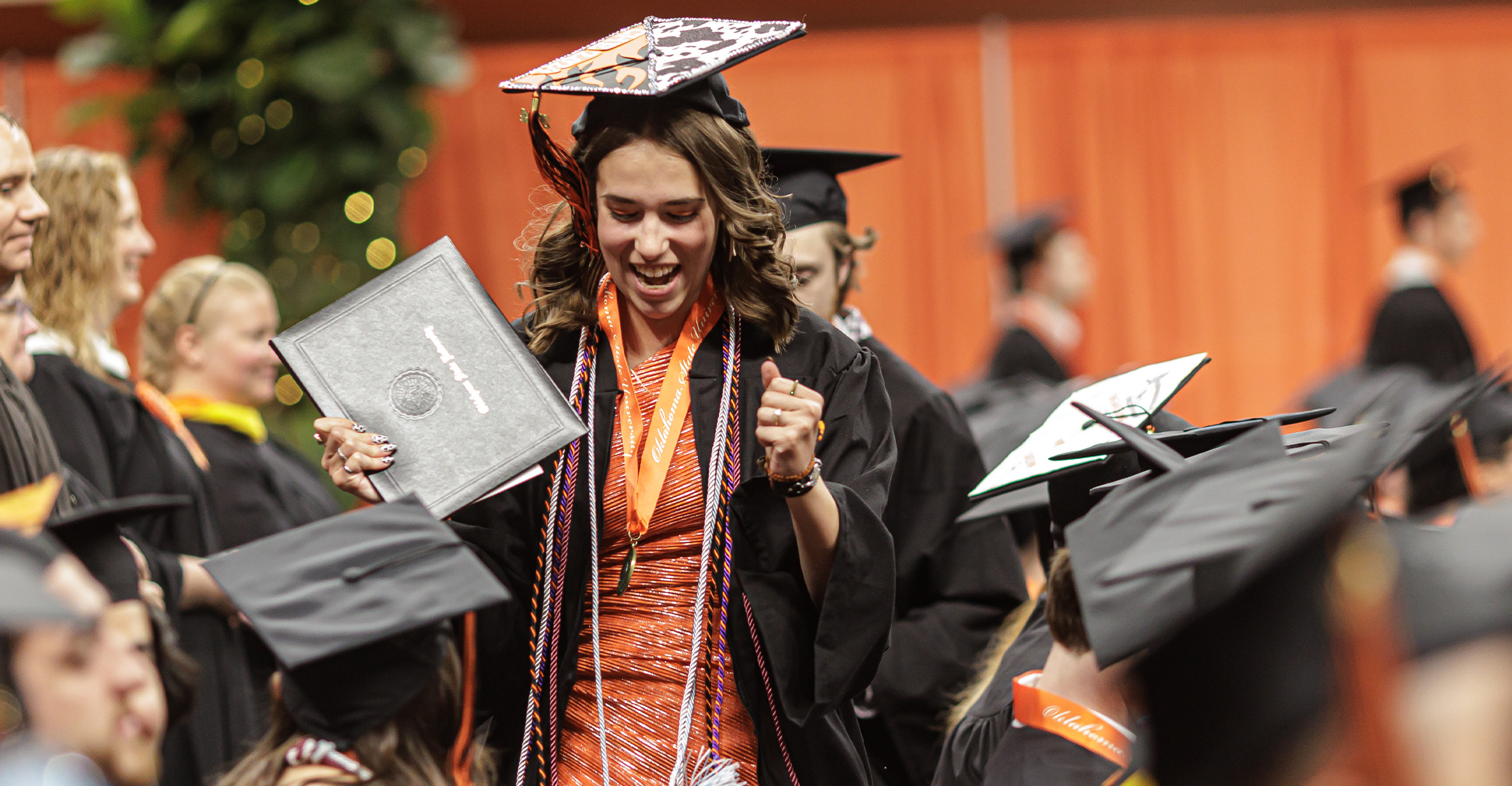
OSU revamps service recognition program
Friday, November 15, 2024
Media Contact: Jeff Hopper | Communications and Media Relations Manager | 405-744-5827 | jeff.hopper@okstate.edu
“Follow effective action with quiet reflection. From the quiet reflection will come even more effective action.” — Peter Drucker, Austrian-American consultant, educator and author.
The pre-professional CORD, or Creating Opportunities for Responsible Development, program at Oklahoma State University has recently undergone a revamp that will allow more students to participate in and be recognized through the program.
The program is designed to honor students pursuing further education and a career path in healthcare, veterinary medicine or law, who have actively taken a role and shown commitment to service-oriented endeavors and professional and personal development during their time at OSU.
These students have the ability to track their service-related activities, apply for the CORD program, and be recognized with a cord to be worn with their convocation gown during commencement ceremonies as a visual representation of their achievements.
Over the last six months, the pre-professional CORD program has undergone a transformation that has realigned the program with new initiatives across campus and allowed for more students to participate.
“The reimagination of the program came as a product of research of other institutions and their programs, as well as an intentional alignment with the Ideal Graduate initiative that was launched this semester,” said Kelly Kavalier, assistant director and pre-law coordinator in the Office of Pre-Professional Health and Law Support Services. “We had avenues for pre-health/med and pre-vet students, but wanted to expand to include pre-law students and reimagine the system by which they achieved their cord recognition.”
Previously, the pre-professional program required 50 hours of service that aligned closely with requirements that pre-health/med or pre-vet students needed for application to their respective professional schools.
“It really seemed like more of a prescribed checklist for students, rather than a system that they could leverage to enhance their college careers and better prepare themselves for their time beyond campus,” Kavalier said. “We wanted the program to be less singularly focused on volunteer service and become more of a professional growth program that would produce a more well-rounded professional experience.”
Kavalier and her team at pre-professional student services imagined a system that still contained straightforward, professional-school aligned opportunities for community service, but also incorporated different avenues for personal and professional development that could fall under a myriad of other categories such as community advocacy, related service opportunities, etc.
However, with the inclusion of pre-law students, the team recognized how cumbersome and limiting a system would be if it involved very specific opportunities for each pre-professional school. As a solution, the team decided to focus on four specific areas of professional development: profession exposure, profession experience, competency and skill development, and professional school readiness.
Each of these areas house different activities that a student can participate in which would earn them points. Students will now be required to accumulate 100 hours of community service and 100 points from the professional development categories, completing at least one activity from each subcategory to be eligible for the CORD program.
While this doubles the old system’s service requirements, the team believes that this more expansive approach allows each student a certain level of customization to their CORD experience.
“We hope that this should allow each student to create their own, unique path through the cord program,” Kavalier said. “If a student wants to focus on rural medicine, they can use service at Our Daily Bread as a foray into underserved communities, or a pre-law student that wants to focus on social justice could become involved with voting rights campaigns, etc.”
The team’s goal was to have students intentionally reflect on their careers after college and how the activities they are participating in now can help prepare them for those careers.
“As the students track their progress through CampusLink, our hope is that they take time to reflect on each experience and how that has impacted their educational path,” Kavalier said. “We really want each student to not only accrue these skills and service capabilities, but to reflect on them and how it allows them to be better, more active community members.”
Students graduating this fall will be eligible to enroll in the former CORD program, students graduating in 2025 or beyond can begin tracking their progress and apply for the new CORD program and the honor of donning the pre-professional cord as they walk across the stage, symbolizing determination to make a difference during their time at OSU.
Students interested in the pre-professional CORD are encouraged to visit preprofessional.okstate.edu.
